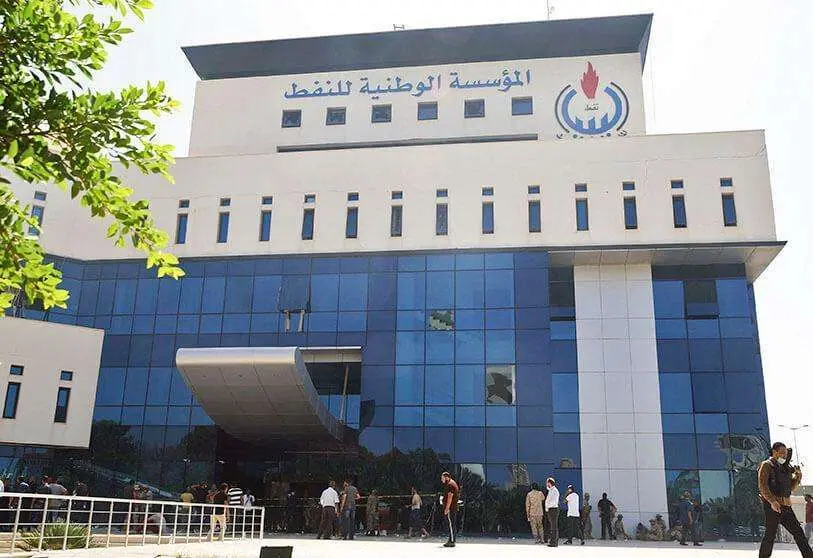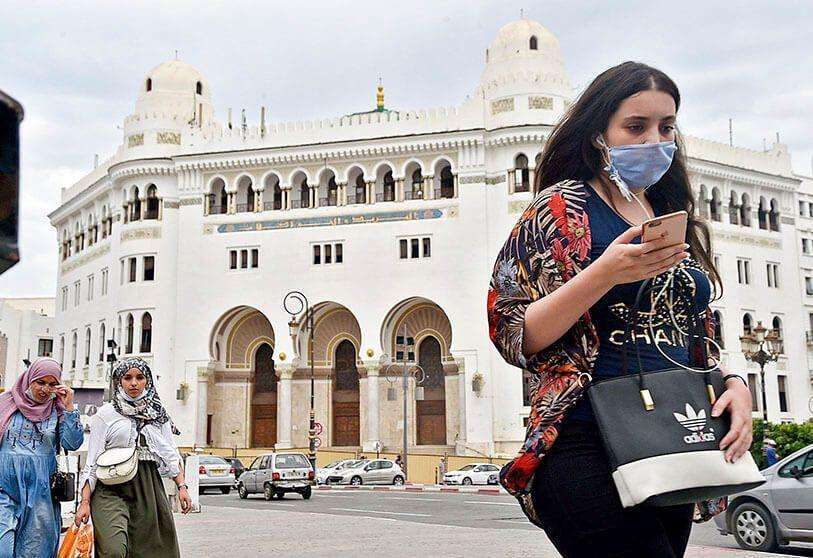Coronavirus slows down oil extraction in Libya

The spread of the coronavirus is beginning to slow down oil extraction in Libya. Two subsidiaries of the National Oil Corporation (NOC) have suspended some of their work due to the expansion of the pandemic in the country, Reuters agency reports on Monday. The country's largest refinery, Zawiya, located west of Tripoli, has closed its offices from 8 to 17 September and reduced its staff by 10%. In eastern Libya, the Arabian Gulf Oil Company has suspended all work and activities for 30 days to protect its employees from the pandemic, except those related to security.
Neither of the two oil companies that said they would suspend work on Monday announced any infection among their staff and said the measures were preventive.Although the pandemic has taken a little longer to reach Libya compared to other countries in the area, such as Morocco or Algeria, it is now starting to get out of control. On Monday, Libya recorded more than 1,000 new cases in 24 hours for the first time since the start of the pandemic. The total is 19,000 infections and 296 deaths, according to the Efe agency.
The COVID-19 is unrelenting in the Central North African region, with hundreds of cases daily in Tunisia, Algeria and Libya which have to manage an acute economic crisis, political instability and a security crisis mixed with Libyan armed conflict and terrorism in the Sahel. Libya is the most precarious country in North Africa. It has been a victim of chaos and civil war since NATO contributed militarily to the victory of the various rebel groups over the Muammar al-Qadhafi dictatorship in 2011.

According to Libya's national centre for infectious diseases, linked to the UN-supported government of National Accord in Tripoli (GNA), the capital and its suburbs account for more than half of the cases. The authorities have therefore asked its residents to avoid displacement, except in cases of force majeure, to allow epidemiological control teams to identify infected persons. However, there are no data on the actual situation in the regions under the control of Marshal Khalifa Haftar, the unrecognised military leader of the Tobruk government in eastern Libya. This failed state has to cope with a non-existent health system and the war itself, which monopolises scarce medical resources.
Last week, Algeria managed to fall below 300 cases per day for the first time since the end of June. But with 46,600 infections and 1,562 deaths, it remains one of the worst affected countries in the area. Meanwhile, the number of patients cured exceeds 32,900. This improvement has been reflected in the holding this Monday of the first face-to-face council of ministers since virtual meetings were introduced in April.

The issue discussed was a review of the constitution and the preparation of a referendum to which this review will be submitted on 1 November. For its part, the Algerian Football Federation cancelled the national league this Sunday after it was suspended in March, leaving the fans without the quarter-finals. In terms of education, there is total uncertainty. Education Minister Abdelaziz Djerad said on Monday that no final date had yet been set for the return of the students - who had been absent from school for six months - originally scheduled for 4 October.
Unlike its neighbour, Tunisia has decided to keep to the school calendar, which will start on 15 September, even though the number of cases has doubled since the opening of the borders at the end of June. Since then, the country has recorded 3 800 new cases and 43 deaths.
Although less affected by the pandemic, it has an official record of 5,000 cases and 93 deaths. Last Friday, the National Observatory of New and Emerging Diseases classified 21 regions out of 24 as high-risk areas, with an average of 10 cases per 100,000 inhabitants. At the beginning of August, the Tunisian authorities blamed this increase on so-called "imported cases" and drew up a list to classify countries according to their risk of contagion.
All travellers arriving from abroad must present a negative PCR, while those coming from countries in orange, such as France, are obliged to respect a self-isolation at home. In the case of red countries such as Spain, Tunisian citizens and resident foreigners are only allowed to return on condition of a quarantine in a centre or hotel chosen by the local authorities.








